Jan 2, 2025
Linguistic Relativity: How Language Shapes Thought
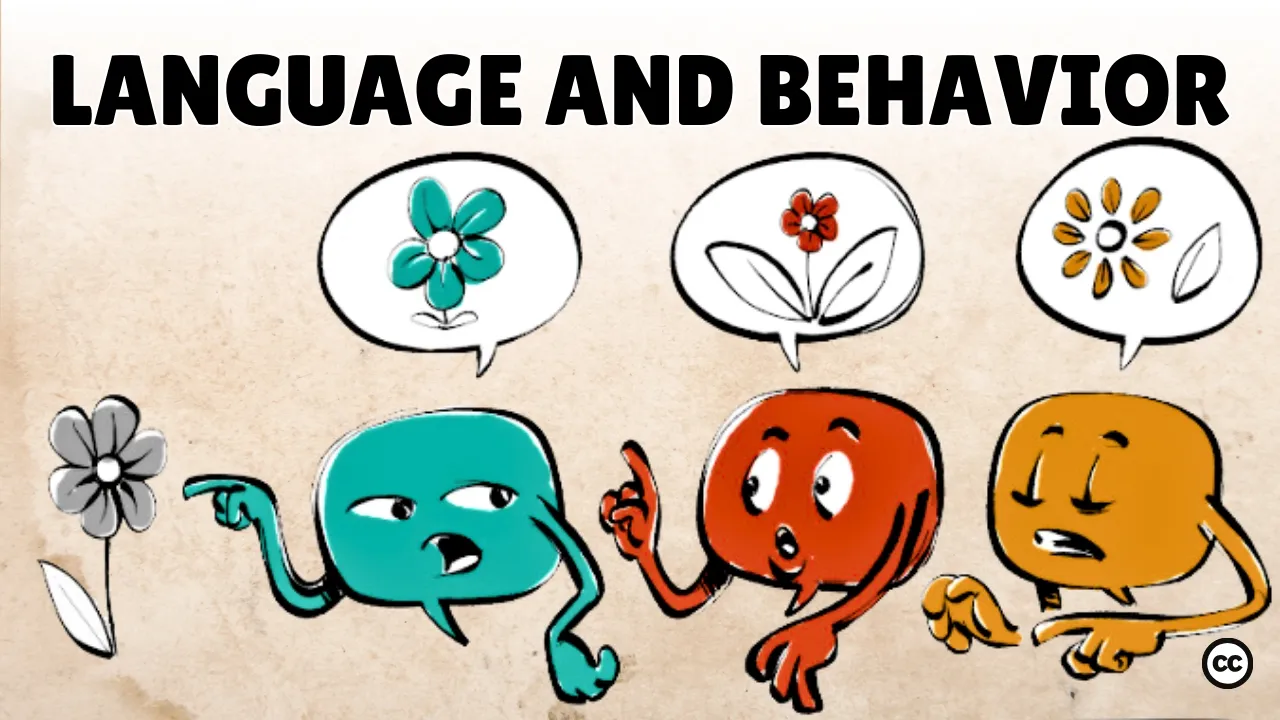
Introduction
Language is more than just a means of communication; it shapes our perception of the world around us. Each language has its own unique sound, structure, and cultural nuances. For instance, Italian is often described as musical, while German may come across as harsher. This raises an intriguing question: does the language we speak influence who we are? Linguistic relativity theory suggests that the languages we use can affect our perceptions, memories, and even our sense of self.
Perception of language
Our perception is deeply influenced by the language we speak. Different languages have unique vocabulary and ways of describing the world, which in turn affects how we perceive our surroundings. For example, in Italian, objects are often categorized as male or female, a distinction that is absent in English. This gendering of objects may lead to a different perception of the world for Italian speakers compared to English speakers.
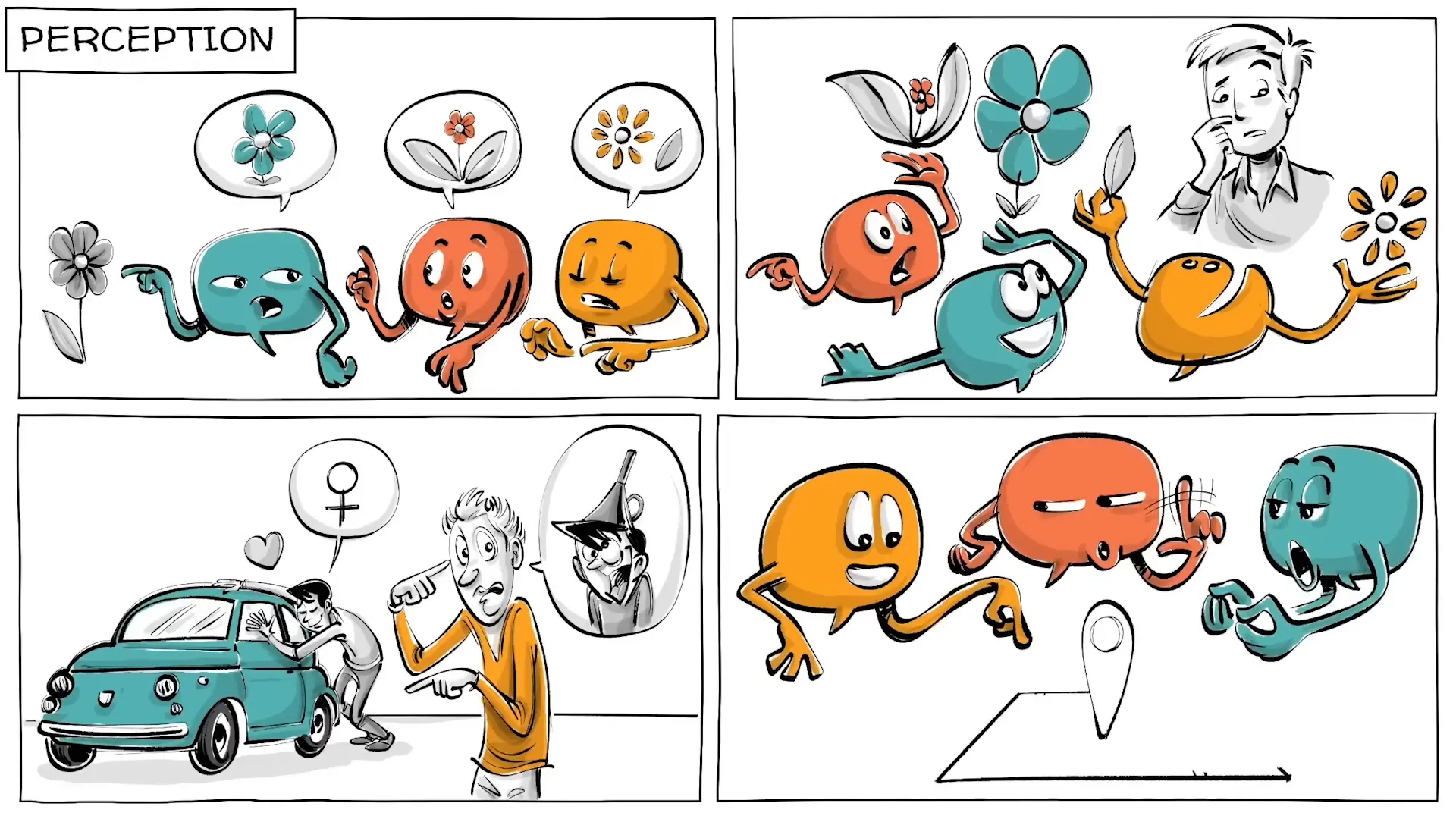
Another fascinating example is found in the Kuuk Thaayorre, an Aboriginal tribe in Australia. They do not use left or right in their language; instead, they rely on cardinal directions—North, East, South, and West. This means they might say, “Pass me the salt on the South-west of the pepper.” This linguistic structure likely contributes to their exceptional navigational skills, as they are constantly aware of their position relative to the cardinal directions.
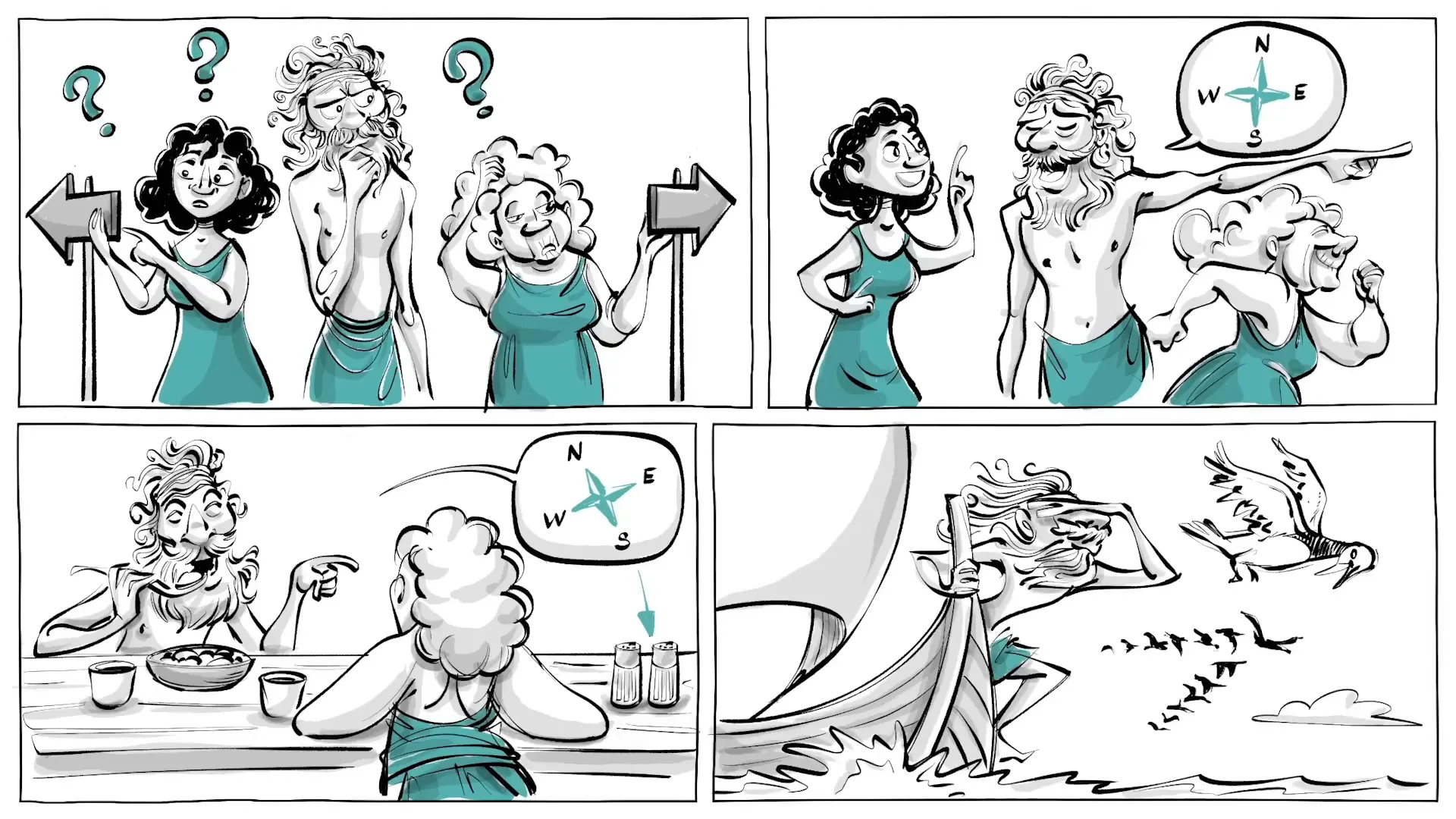
Perception of time
The way we express time in language can also influence our perception of it. Languages are often written in different directions, which affects how speakers perceive sequences of events. For instance, English speakers who write from left to right may visualize time as moving from left to right. Conversely, speakers of Arabic and Hebrew, who write from right to left, may perceive time in the opposite direction.
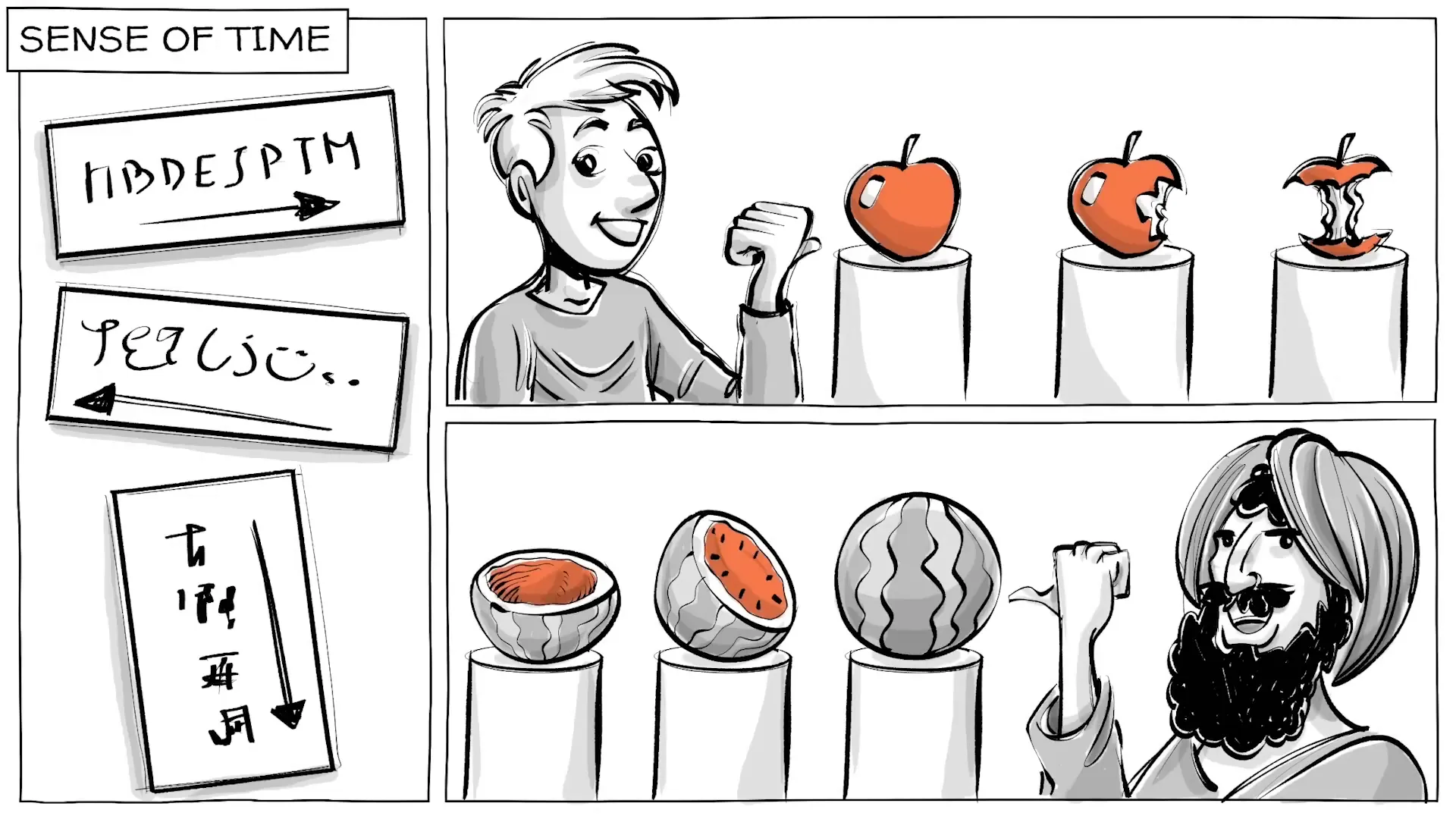
In Papua New Guinea, the Amele language has three distinct forms of past tense: Today’s past tense, yesterday’s, and remote past tense. This linguistic feature requires speakers to pay close attention to when events occurred, likely leading them to perceive temporal sequences with greater detail than speakers of languages with fewer distinctions.
Effect on memory
Language not only shapes our perception of time but also influences our memory. Consider how responsibility is framed in different languages. In English, if a child accidentally breaks a vase, one might say, “He broke the vase,” attributing responsibility directly to the child. In contrast, a Spanish speaker might say, “El jarrón se rompió,” which translates to “The vase broke,” placing more emphasis on the object rather than the person. This subtle difference can have significant consequences on memory recall.
Research indicates that speakers of languages like Spanish, which frame events as accidental, are less likely to remember the people involved. Conversely, languages that emphasize intention lead to clearer recollections of the individuals involved in an event. This linguistic framing can even have implications in legal contexts, where the language used during trials can affect jury perceptions and verdicts.
Cultural echoes
Languages are deeply intertwined with culture, and this connection influences how we express ourselves and interact with others. Different languages may evoke different aspects of our personality. For example, studies on Spanish-English bilinguals have shown that individuals often exhibit varying personality traits depending on the language they are speaking. When communicating in English, they may come across as more agreeable, while switching to Spanish could bring out more neurotic tendencies.
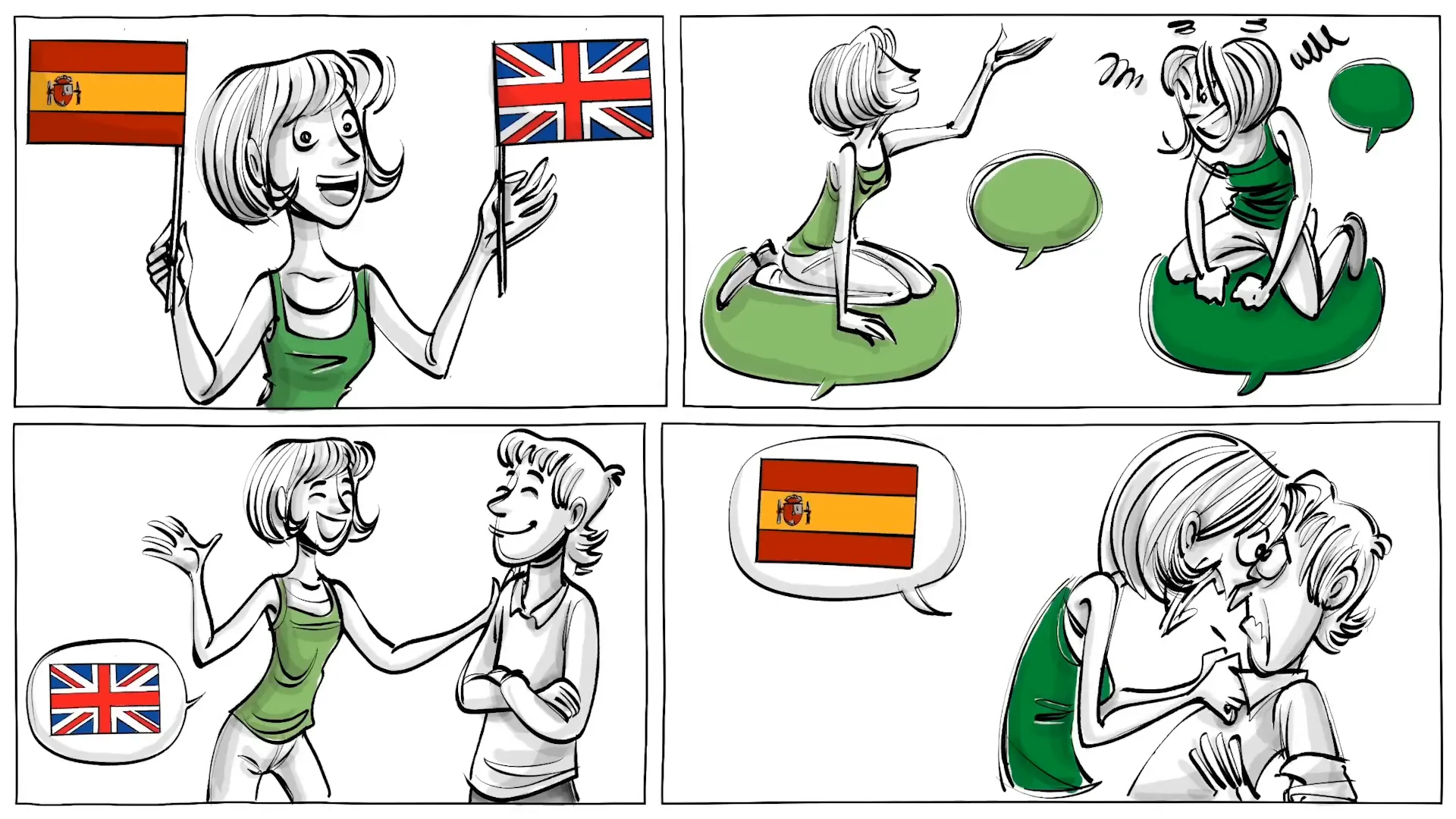
Self-reflections
The words we choose to express ourselves can significantly impact our self-perception and emotional state. Self-affirming language activates brain areas associated with reward and self-esteem, which can boost our confidence. This effect is not limited to self-talk; it extends to how we perceive physical sensations, including pain. Bilingual individuals often report experiencing different levels of pain depending on the language they are using. For them, the language that resonates more with their identity might amplify their perception of pain.

Linguistic relativism
The theory of linguistic relativity, famously associated with Benjamin Lee Whorf, posits that language shapes our thoughts and cognitive processes. According to Whorf, language is not merely a tool for expressing ideas; it actively shapes those ideas and guides our mental activities. This perspective invites us to consider how our linguistic choices influence our worldview and interactions with others.

Benjamin Lee Whorf
Benjamin Lee Whorf's contributions to linguistic relativity have sparked significant debate and research in the field of linguistics and cognitive science. He argued that the structure of a language affects its speakers' worldview. For instance, languages that encode for specific aspects of reality may lead their speakers to focus on those aspects more than speakers of languages that do not. His work suggests that by learning a new language, we might gain new perspectives and ways of thinking about the world.
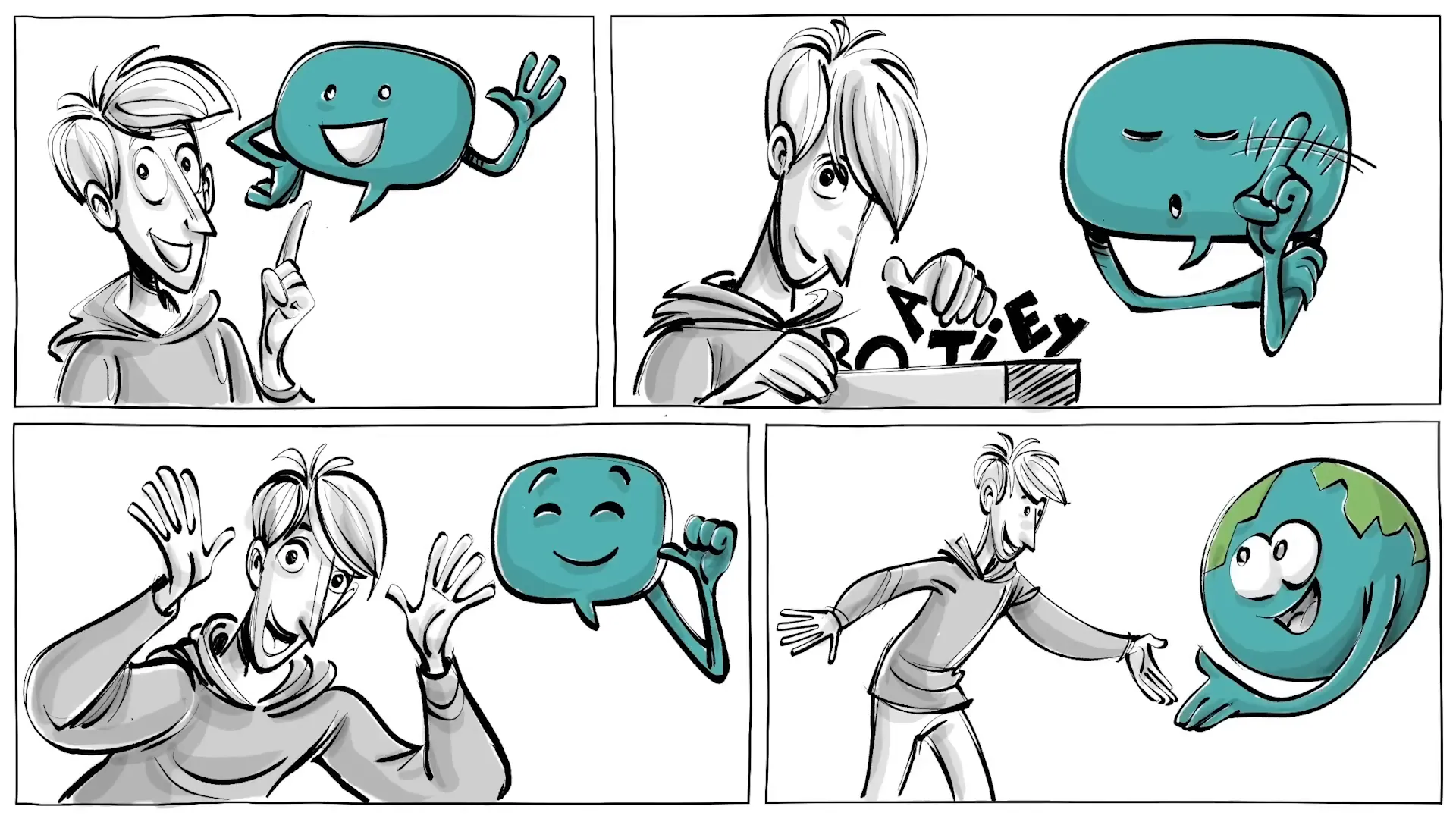
What do you think?
As you reflect on the concepts of linguistic relativity, consider your own experiences with language. Do you speak more than one language? If so, have you noticed changes in your behavior or perception when switching between languages? Engaging with different languages can open up new ways of seeing and interacting with the world, offering insights into how language influences thought and identity.
Conclusion
In conclusion, the languages we speak do more than just convey information; they shape our perceptions, memories, and identities. As we learn new languages, we unlock new ways of understanding the world around us. Language is a powerful tool that can influence our thoughts and interactions, inviting us to explore the richness of human experience.
This article was created from the video Linguistic Relativity: How Language Shapes Thought with the help of AI. It was reviewed and edited by a human.



